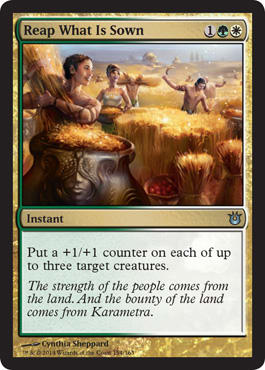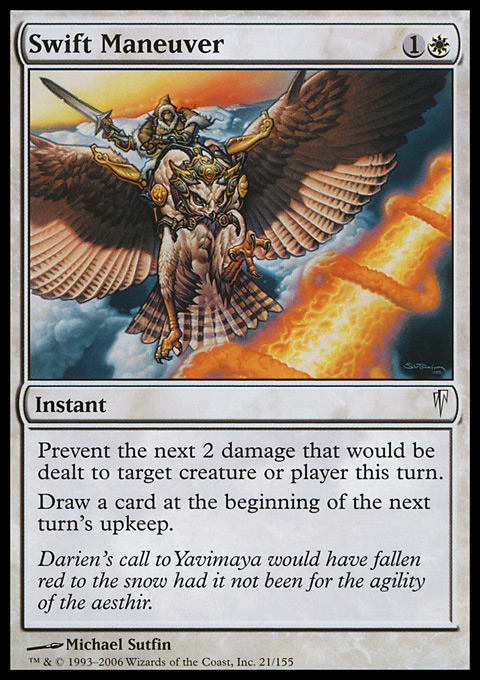My field of study, mental health, is emotionally high-pressure—especially for a trainee. So many times after a difficult session, I have found myself staring at the table and going over my limitations. If only I knew more. If only I had studied more. If only I spent every minute of every day reading research.
But really, this isn’t just me at all—or my colleagues. In her book The Gifts of Imperfection, social-work researcher Brené Brown discusses American culture’s obsession with productivity and achievement. Whether it’s work or parenting, every second off the clock is seen as somehow wasteful. Taking time to do things with no quantifiable value is countercultural (Brown 102).
Now, I could defend our Magic time on a philosophical level. I will gladly stand by positive experiences as an end in themselves. But if you have that little internal (or external) voice that demands to know why you’re wasting time on card games when you have real responsibilities to worry about, I have a secret for you. Positive experiences—things that interest you, that excite you, that make you happy—are productive.
Broaden and Build
I have talked frequently about positive psychology and its practitioners’ interest in broadening psychology’s scope beyond suffering and deficits (Seligman & Csikszentmihalyi 7). In 1998, a researcher named Barbara Fredrickson published an article titled “What Good Are Positive Emotions?” In this piece and later elaborations, she has presented the broaden-and-build theory of positive emotion.
Fredrickson acknowledged the obvious relationship between positive emotions and quality of life—happiness and other emotions as a sign that things are going smoothly. However, she also wondered whether they did more than give an internal sense of feeling good. She wanted to know what the long-term effects were. Once a positive emotion was past, were its benefits over? Or did it offer some contribution to the future (“The Role of Positive Emotions” 218)?
To answer this question, she proposed that positive emotions (particularly joy, interest, contentment, pride, and love) have two major effects. First, they broaden people’s ranges of thought and behavior in the moment, leading to exploration and discovery. And second, they build internal and external resources (“The Role of Positive Emotions” 218).
I’m going to set aside serious, outcome-oriented tournament play here, as certain motivations can keep people playing without the benefit of positive emotions. But playing for the sake of playing? Deck-building, reading, analyzing Magic just for the joy of it? This theory seems like an ideal fit.
Broadening in Magic
For many of us, Magic is where we go to unwind. During my internship, the weekly Draft at my local store was the evening of my most stressful shift, and I could not have planned it better. After needing to be intensely focused all day, it was nice to loosen up a bit.
Similarly, I see events providing people with relief from social pressures. Head Designer Mark Rosewater recently collected stories of the ways that Magic has changed people’s lives, and the theme of taking risks and trying new approaches came up repeatedly. One transgender letter-writer described how, as she was navigating her transition, the Magic community became a place for her to experience presenting as female full-time (Rosewater).
Being in an anxious emotional state or under threat has a number of effects on us. Many of them are in our body—our hearts race, our blood pressure rises, we begin to breathe rapidly. These changes work together to serve one function: to prepare us for staying alive in a dangerous situation. (“Tsilimparis”).
For similar reasons, anxiety has effects on the mind. A number of subtle shifts in thinking help us to stay attuned to the problem at hand (Derryberry & Tucker, qtd. in Friedman & Forster 875). Certain negative emotions can cause us to narrow aspects of our visual focus (reviewed in Friedman & Forster 875) and our judgment (Mikulincer, Kedem, & Paz, qtd. in Friedman & Forster 876)—and to limit the number of possible activities we’d be interested in doing (Fredrickson & Branigan 7). In this way, our bodies tell us when to be curious and when to be serious.
In contrast, positive emotions expand our awareness to include information that is potentially less pressing and ideas that are a little more out there. No danger is lurking; it’s safe to explore (Friedman & Forster 876). And although you might expect someone who is feeling good to become laissez-faire, brushing off negative information that might put a damper on things, research suggests the opposite—people in a positive mood pay more attention to negative information . . . as long as it’s important (reviewed in Aspinwall 21). Thus, an environment of positive experiences may allow us to finally acknowledge and do something about those weaknesses or dissatisfactions we’ve been trying to ignore.
Look again at the list of positive emotions that Fredrickson addressed: joy, interest, contentment, pride, and love (“The Role of Positive Emotions” 218). Whether we’re aware of it or not, these are experiences that many of us seek when deciding to invest our time and money in the game. And we often find it.
I’ve had my horizons broadened plenty these past few years: new jobs, new states of residence, new responsibilities, basically just carried along on a relentless tide of novelty. It was pretty much a full-time scramble to stay on top of it. While I enjoyed my work, I was not terribly motivated to make it any more complicated than it already was. Pursuing a leadership position, traveling, publishing my writing—those could wait until I had found my footing.
And yet, simultaneously, within the secure boundaries of the Magic community, I was not only doing these things . . . I was actively seeking them out. I was handing my phone numbers out to judgelings. I was driving with my husband from Wyoming to Salt Lake City to play in Grand Prix side events. Article ideas came from the most unexpected sources, and more often than not, I wrote them out.
It’s not that I didn’t have creative or adventurous ideas within the professional environment (I couldn’t turn it off if I tried), but they were fewer, and I was less willing to pursue them. It’s time to be serious. It’s time to play it safe. But while the narrow view may get you through the workday, what does it do for your long-term development?
Building in Magic
This is where the building-resources component comes in. After all, I said I wasn’t just going to talk about feeling good, but about being productive.
As I mentioned in my example, broadening allowed me to practice and develop a number of skills (leadership, writing) that I probably would not have added to my already overfull professional responsibilities without great pressure. A quick poll of my Twitter followers revealed that many put Magic-related activities on their resumés as a form of skill development, and some directly credited their current jobs to employers admiring their gaming-related writing or web design.
When it comes to building resources in the form of current products, interest can have a particularly strong effect. It’s fairly intuitive that more interesting tasks or objects inspire us to explore them and keep exploring longer (reviewed in Thoman, Smith, & Silvia 593). Less apparent is their lasting effect—rekindling our motivation for the next activity (Thoman, Smith, & Silvia 595). In a series of experiments, people who completed a mentally draining activity were more persistent on later activities if the in-between activity made them feel interested (Thoman, Smith, & Silvia 597).
What does this mean for us? It means you’d expect to find a lot more energy for the tedious details of a task if it’s within the context of something that really interests you. If you’re writing about Magic, the grindy, apply-seat-to-chair part alternates with reading, talking, and thinking about one of the things that fascinates you most. If you’re trying to work on not tilting, hope you’ll have some really engaging games in between the ones in which you grapple with applying the new skills. You can then take your finished product or your new skills, their quality ideally boosted by the extra motivation and persistence, and transfer them to an environment that may not offer the same consistent rewards.
And finally, there are the social resources. Research suggests that those who have harmonious passions for activities (as opposed to obsessive passion, which is compulsive and can be unpleasant) had more positive relationships with their fellow participants. Furthermore, this connection appeared to be completely explained by the positive emotions experienced (Philippe et al. 929).
These bonds can offer both emotional and practical support. As I discussed in my article on weak ties, friendly casual relationships can provide a wealth of opportunities and information not known to more closely-knit and homogeneous circles. The congenial atmosphere of a Friday Night Magic or convention can inspire you to broaden your social circle just because, and you only find out later what a valuable connection you’ve made.
Resource Management
As gaming and other geekery loses its stigma, it makes less and less sense to keep the parts of our lives siloed. Magic has built resources for so many of us, and we should claim them for what they are. In fact, as I began to explore science-writing opportunities, I was completely surprised to find that my Gathering Magic page is effectively a portfolio. I used my writing and social-media activity to demonstrate my interest in leadership for that section of a postdoc application, and I have developed my previously impenetrable communication style to the point that a supervisor praised the way I clarified information for parents. Some things you can’t learn by reading research.
It is almost certain that you can find the same in your life. This may be a finished product reflecting your creativity and aptitude, a set of skills you can bring to your workplace, or a life-relevant personal connection. The positive emotions connected to your passion and pastime make it the perfect incubator for all sorts of personal development and accomplishment. It’s time that we take full advantage of this fact and give it the respect it deserves.
Works Cited
- Aspinwall, Lisa G. "Rethinking the Role of Positive Affect in Self-Regulation." Motivation and Emotion 22.1 (1998): 1–32.
- Brown, Brene. The Gifts of Imperfection: Let Go of Who You Think You're Supposed to Be and Embrace Who You Are. Center City, Minn.: Hazelden, 2010. Print.
- Fredrickson, Barbara L. "The Broaden-and-Build Theory of Positive Emotions." Philosophical Transactions of the Royal Society of London, Series B. (2004): 1367–1378.
- Fredrickson, Barbara L. "The Role of Positive Emotions in Positive Psychology: The Broaden-and-Build Theory of Positive Emotions." American Psychologist 56.3 (2001): 218–226.
- Fredrickson, Barbara L. "What Good are Positive Emotions?" Review of General Psychology 2.3 (1998): 300–319.
- Fredrickson, Barbara L., and Christine Branigan. "Positive Emotions Broaden the Scope of Attention and Thought?Action Repertoires." Cognition & Emotion 19.3 (2005): 313–332.
- Friedman, Ronald S., and Jens Foerster. "Implicit Affective Cues and Attentional Tuning: An Integrative Review." Psychological Bulletin 136.5 (2010): 875–893.
- Rosewater, Mark. "A Touch of Magic." Daily MTG: Magic: The Gathering. Wizards of the Coast, LLC, 16 June 2014. Web. 23 Nov. 2014.
- Seligman, Martin E.P., and Mihaly Csikszentmihalyi. "Positive Psychology: An Introduction." American Psychologist. 55.1 (2000): 5–14. Web. 6 Oct. 2013.
- Thoman, Dustin B., Jessi L. Smith, and Paul J. Silvia. "The Resource Replenishment Function of Interest." Social Psychological and Personality Science (2011): 592–599.
- Tsilimparis, John. "What Is Anxiety?" Anxiety & Panic Disorder Center of Los Angeles. Anxiety & Panic Disorder Center of Los Angeles, June 2010. Web. 23 Nov. 2014.



























